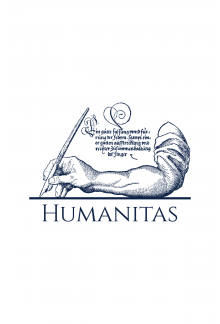- Home
- All Categories
- Academic, Professional Literature
- Medicine
- Public Health & Nursing
- Concept-Based Clinical Nursing Skills

Concept-Based Clinical Nursing Skills
Author : Connie J Hollen
Published: 2020
Publisher: Elsevier
Language: English
Format: Paperback / softback
Format: 10.875×8.5
<p>Are you looking for a new way of learning skills? Do you want to learn how to problem solve and think conceptually? Stein and Hollen’s <b>Concept-Based Clinical Nursing Skills: Fundamental to Advanced</b> covers over 250 nursing skills in an innovative concept-based format with excellent illustrations, concise rationales, and current evidence. Unlike any other text, Stein and Hollen incorporate an overarching framework of seven critical concepts — accuracy, client-centered care, infection control, safety, communication, evaluation, and health maintenance — to drive home the importance of these key themes in performing nursing skills. Each section balances need-to-know narrative with step-by-step skills, and every chapter includes a detailed case study with a concept map to help you apply knowledge and use clinical judgement in clinical situations involving nursing skills.</p><ul> <li>Over <b>250 step-by-step nursing skills with over 900 photos and illustrations.</b></li> <li><b>Language and concepts reflect those used on the NCLEX.</b></li> <li><b>Concept-based approach</b> to skills education pairs well with the Giddens framework.</li> <li>Accuracy, Client-Centered Care, Infection Control, Safety, Communication, Evaluation, and Health Maintenance are reinforced throughout as <b>Critical Concepts</b> to skills performance.</li> <li><b>Case studies with concept maps</b> depict patients with problems that might be experienced in the clinical setting and are followed by a series of <b>critical thinking questions</b> with every chapter.</li> <li><b>Application of the QSEN competencies:</b> A question that challenges you to apply a QSEN competency is provided within the critical thinking questions of each case study.</li> <li><b><i>Lessons from the Evidence</b></i> <b>boxes</b> highlight and summarize current research that can contribute to evidence-based clinical practice; <b><i>Lessons from the Courtroom</b></i> <b>boxes </b>summarize actual court cases related to the skills in the chapter in order to help you understand legal implications; and <b><i>Lessons from Experience</i> boxes</b> use a storytelling format to share the experiences of more experienced nurses with students.</li> <li><b>Application of the nursing</b> <b>process:</b> Nursing diagnoses that include specific examples of client outcomes and nursing interventions are presented within each section of the chapters. </li> <li>Uses an <b>easy-to-understand, conversational writing style.</b></li> <li><b>Organized to present fundamental skills first, then intermediate acute care skills, and finally advanced skills</b> often performed in critical care.</li> <li><b>Critical concepts align with the quality and safety framework of the QSEN competencies.</b></li> <li><b>Emphasis on safety and client centered care.</b></li> <li><b><i>Expect the Unexpected</i> boxes</b> use a storytelling format to present unexpected situations that could occur and explore appropriate responses to them.</li> <li><b>Home Care, Lifespan, and Cultural Considerations</b> provided in each chapter.</li> <li><b>Performing an Assessment chapter</b> details physical assessment skills. </li> <li><b>Evolve site for students</b> features skills video clips, skills checklists for all skills, and NCLEX-style review questions.</li></ul>
